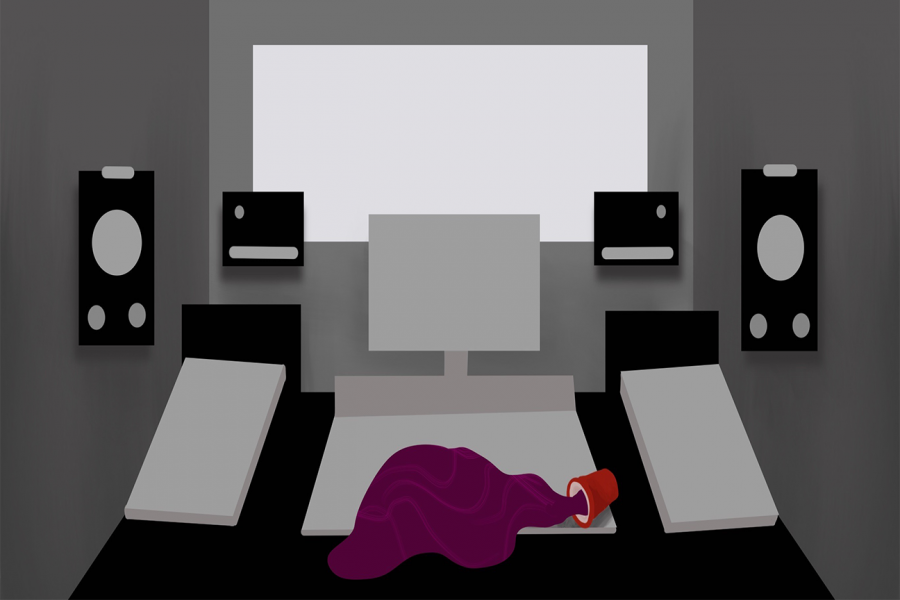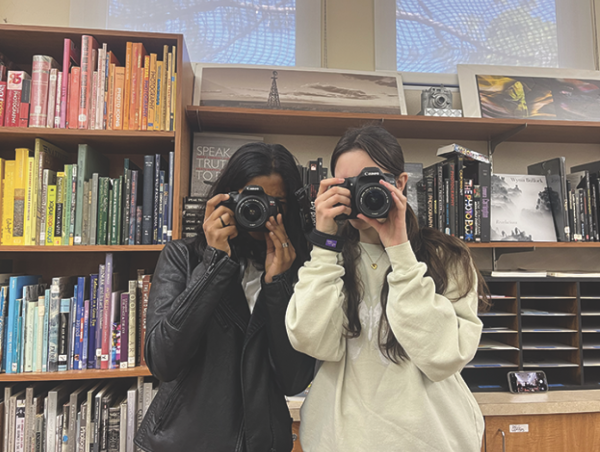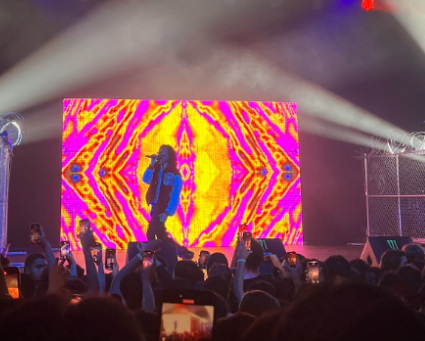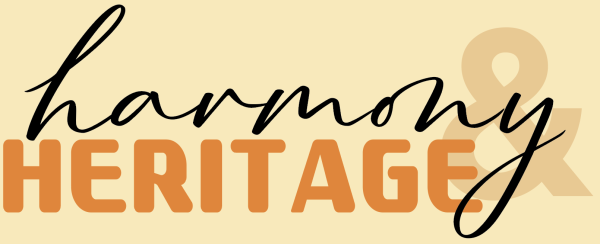Stop and Listen
Music fans wrestle with the importance of separating the art from the artist
While sitting in her room, junior Theresa Hart pulled out her phone and clicked on Instagram where she saw news about homophobic remarks that rap artist DaBaby shouted out during one of his performances.
Because Hart had only listened to DaBaby’s music in “Levitating” by Dua Lipa ft. DaBaby, 10 times or so before, she promptly decided to stop listening to the song because of the music artist’s actions.
“I [thought] ‘Well why would you say that?’” Hart said. “There are hundreds of things you could say at your concert. This is so unnecessary. It’s unnecessary in any context.”
Living in the age of social media, celebrity news travels faster than ever, and music artists are no exception to this rule. The increased exposure of music artists’ lives and ideologies minimizes their room for error and can present a more challenging case to fans who generally separate the music they listen to from its artist.
With all of the music-artist-directed criticism that pops up online and in the media, how does one decide at what point to draw the line and stop listening to their music?
Since its release, many have criticized rapper Kanye West’s most recent album “Donda” for its supposed slow start and inconsistent style. Beginning with “Donda Chant,” a tribute to West’s passed-on mother, the album features a somewhat new tone that generally doesn’t align with his previous work and has since received mixed reviews.
For junior Oliver Marburg, the media’s opinions of the album don’t cloud his opinion at all. Marburg, a Kanye West fan and longtime fan of rap, fell in love with West’s discography when he went through his previous nine albums.
The artist doesn’t make music for the media. The media is just taking that outside perspective.
— Oliver Marburg
After listening to “Donda,” he liked the album and thought it stuck to its theme. “The artist doesn’t make music for the media,” Marburg said. “The media is just taking that outside perspective.”
However, Kanye West is only one of many artists who have been clobbered by the media. Singer Courtney Love has been the poster child for media-bashed music artists for decades, in part due to her over-the-top personality and presumably unhealthy relationship with late rockstar and lead singer of Nirvana, Kurt Cobain.
Freshman Clara Hoffman, who has been a rock fan since childhood, listens to Nirvana among other music artists. Despite their longtime connection to the band, Hoffman has also listened to a few of Courtney Love’s songs.
“Hearing about all of the drama still doesn’t really change [the music] for me because I’m interested in what the music is,” Hoffman said.
Hoffman believes in separating the artist from their music until the music and lyrics themselves become part of the problem. At this point, if the lyrics do cross a line, it could mean the difference between the loss or gain of a fan for Hoffman.
In general, song lyrics cross a line if they contain offensive material like racist, homophobic or sexist lines, just to name a few examples.
I really liked that song, and I still do, but I don’t listen to it because I don’t want to give him money.
— Theresa Hart
Additionally, song lyrics may be inexcusable if they’re being used by an artist to manipulate listeners into pardoning them from receiving criticism.
Similarly, Hart believes that certain issues caused by music artists warrant discontinuing one’s support for their songs. For example, “Do It Again” by Pia Mia ft. Chris Brown used to be one of Hart’s go-to’s until she found out about Brown’s history of abuse towards singer Rihanna. At that point, she stopped listening to the song and never went back. “I really liked that song, and I still do, but I don’t listen to it because I don’t want to give him money,” Hart said.
Even though listeners may not be aware of their own impact, it’s important to stop listening to music when artists act poorly because they need to see the repercussions of their actions. Hart highlights this principle when speaking about DaBaby’s music.
“Yes, that’s just one less listener on his spotify, but he did get dropped which was important because he saw the real repercussions of what he said,” Hart said.
Occasionally, after artists notice a drop off in listeners, they have comeback eras where they try to repopularize their music. A common method artists use to try and repopularize their music is changing their music genre or style.
Some genres of music are wide enough where artists can simply try a different aspect of the same genre; this is especially evident in pop music. Pop has numerous subgenres, so often pop artists don’t have to diverge too much from the pop genre.
“Call [pop music] stereotypical, call it boring, call it whatever you want,” Hart said. “Actually, you can’t call it boring because you can do so many things with it.”
A pop artist infamous for genre switching is Taylor Swift. She started with sweetheart country and pop, but as the years went on, it evolved into electro pop before transitioning back to more mellow pop music.
Some associate the genre switches with the pressure from the ever-changing music industry and pop culture trends; in contrast, others believe it is natural for an artist’s music to change as they grow and develop as a person.
However, it can be hard for upcoming artists to come up with music that doesn’t include influences from current artists. Unfortunately, the inclusion of influences from other artists can sometimes end up in plagiarism lawsuits.
Recently, artist Olivia Rodrigo has given up millions of dollars to Taylor Swift and Hayley Williams from Paramore due to plagiarism accusations.
Sophomore Evelyn Zhang, an occasional Rodrigo listener, doesn’t notice the overlap in music but acknowledges the possibility of its presence.
The way you present yourself and also the way you are as a person is super important because you’re sending a message on what you stand for and what you believe.
— Johannah Seah
“I think it’s hard to immediately have a distinct music style when starting out in the music industry,” Zhang said. “We subconsciously add in bits and pieces of our experiences into our expressions of art, so there are going to be similarities.”
Yet, the accomplishments of newer artists should not be diminished. Junior Johannah Seah loves what newer artists bring to the music industry. “It’s really great that the newer artists are getting to show their music to the world,” Seah said. “Olivia Rodrigo has inspired a lot of other songwriters as well.”
Nowadays, the content of music holds great influence over worldwide music lovers’ opinions. The ways in which artists use (or don’t use) their music and platform as a medium to project their beliefs should be noted by all music followers.
“The way you present yourself and also the way you are as a person is super important because you’re sending a message on what you stand for and what you believe,” Seah said. “Music is really tied to that, especially if your music is the main issue that people are concerned about.”
Featured image by Kellyn Scheel
Print Issue
Please click on the three vertical dots on the top right-hand side corner, then select “Two page view.”
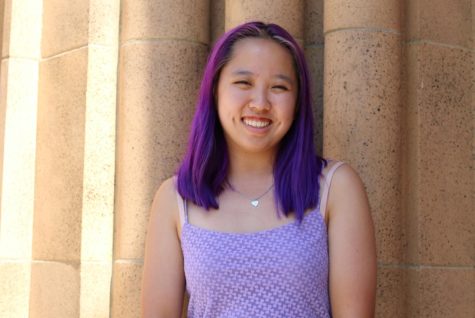
2021-2022 - Staff Writer
2022-2023 - Online-Editor-In-Chief
I joined C Mag because I love art and music. I love C Mag's creative freedom. We get...
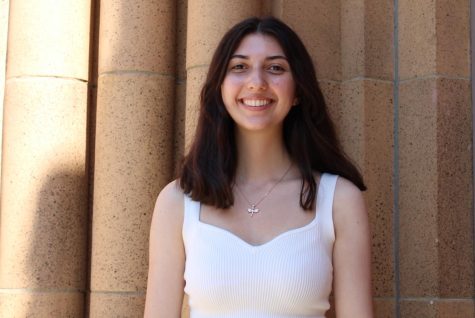
2021-2022 - Staff Writer
2022-2023 - Editor-In-Chief
I joined C Mag because I like the magazine's focus on design and feature stories. My favorite...

2020-2021 - Staff Writer
2021-2022 - Business Manager
Hello! My name is Natalie Hmelar, I am the C Mag business manager. I love being in C Mag because...


